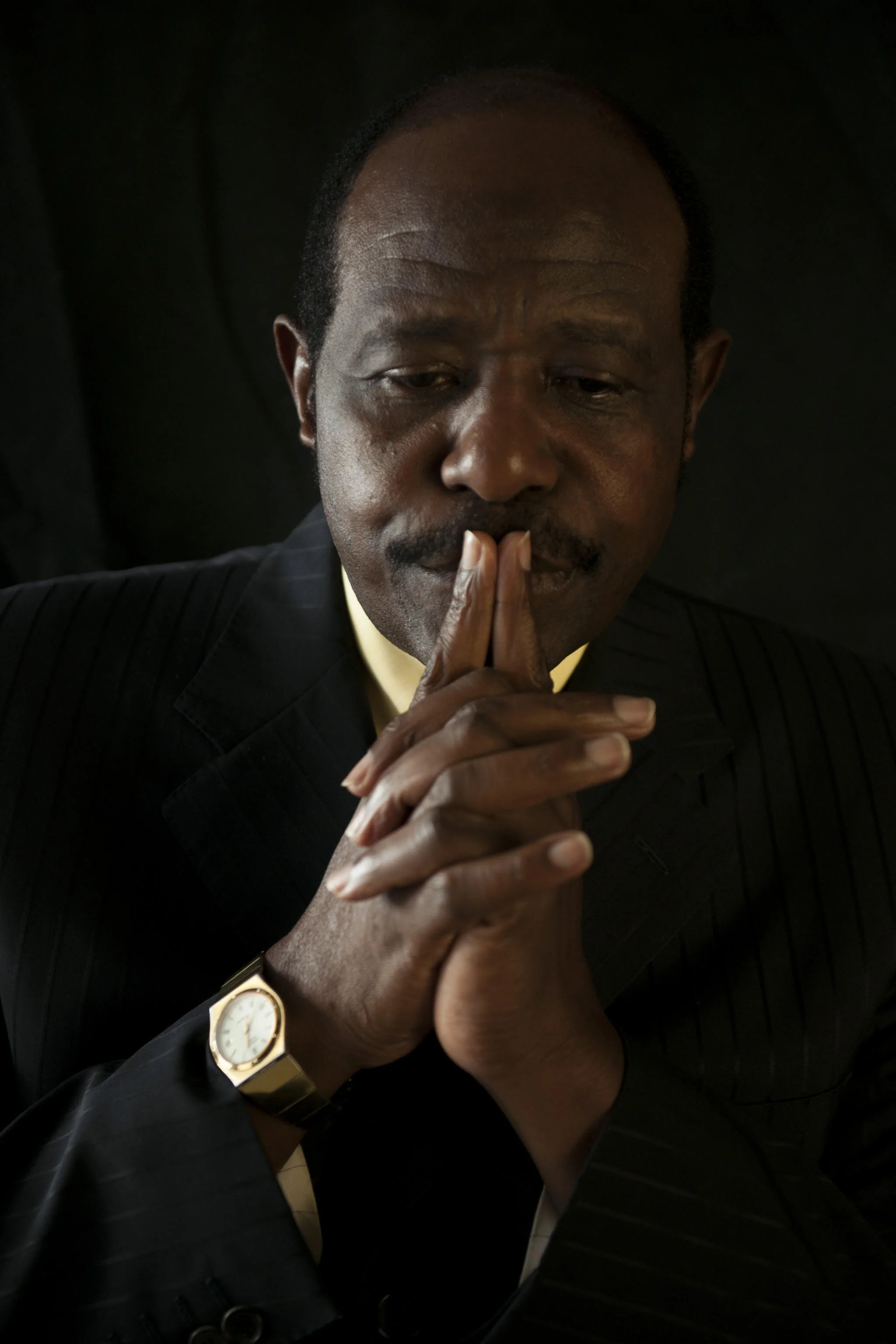Paul Rusesabagina, 'Hotel Rwanda' hero who credited Adventist upbringing, on trial in Kigali
Paul Rusesabagina. Photo via the Hotel Rwanda Rusesabagina Foundation supporting the #FreeRusesabagina campaign on social media.
MESQUITE, Nev. — Paul Rusesabagina, whose success in saving 1,268 Tutsis and moderate Hutus fleeing a 1994 genocide was told in the Oscar-nominated film Hotel Rwanda, is on trial this week in Kigali, the East African nation’s capital.
Supporters say the allegations against him concerning weapons trafficking and support for a rebel Hutu group are false. They allege the government of Rwandan president Paul Kagame illegally diverted Rusesabagina, 66, from a charter flight supposedly traveling from Dubai to Burundi, instead directing the flight to Kigali.
“It was a kidnapping, it was an unlawful rendition,” said Katrina Lantos Swett, the former Chair and Vice-Chair of the United States Commission on International Religious Freedom (USCIRF) and a longtime friend of Rusesabagina. “Since being there, basically he's being held incommunicado. There were a number of international laws and standards of rule of law that have been broken in the whole way that they got him there and are now conducting this trial, which has just begun. It's very, very disturbing.”
In December 2020, 38 members of the House of Representatives and the Senate, of both parties, sent a letter urging Kagame to return Rusesabagina, a Belgian citizen who holds permanent U.S. residency.
“We write to express our grave concern with the manner in which your government extrajudicially transferred Mr. Rusesabagina from the United Arab Emirates to Rwanda and then immediately placed him in solitary confinement and charged him with multiple crimes, including terrorism,” the letter said in part
The European Parliament has also passed a resolution condemning “the enforced disappearance, illegal rendition and incommunicado detention of Paul Rusesabagina.”
Swett, daughter of the late U.S. Congressman and Holocaust Survivor Rep. Tom Lantos (D-Calif.), heads the Lantos Foundation for Human Rights and Justice in Concord, New Hampshire, and is raising money to assist in Rusesabagina’s defense. The Lantos Foundation awarded Rusesabagina the Tom Lantos Human Rights Price in 2011.
In 2005, President George W. Bush presented Rusesabagina with the Presidential Medal of Freedom, the nation’s highest civilian honor.
Credits Adventist Upbringing
Raised a Seventh-day Adventist, Rusesabagina credits his religious upbringing and education at an Adventist secondary school in Gitwe, Rwanda, and a church-owned seminary in Yaoundé, Cameroon, with giving him the spiritual strength to work to save those hiding at the Hôtel des Mille Collines (“Hotel of a Thousand Hills”) from execution at the hands of the Hutu paramilitary force known as the Interahamwe.
Kitty Kurth, a Chicago-based public relations executive who also heads the Hotel Rwanda Rusesabagina Foundation, said Rusesabagina was guided by a conscience formed during his Adventist education, which also gave him the skills needed to negotiate with the Interahamwe during the genocide.
While Rusesabagina told this reporter, around 2005, that he was not currently practicing the Adventist faith, his friends and acquaintances report that the former hotelier has continually noted the influence of the church on his life.
“It was very clear that his upbringing within a faith community, that the sort of lessons of we are our brother's keeper and moral integrity, and frankly trying to be a peacemaker all stemmed from a childhood that did very much emphasize the significant influence of his Adventist upbringing,” Swett said.
Not everyone from that faith tradition was as fortunate. An estimated 10,000 Seventh-day Adventists perished in the inter-tribal conflicts of 1994. One Adventist pastor, Elizaphan Ntakirutimana, president of the church’s South Rwanda Field, was convicted in 2003 of complicity in the genocide, while his son, Gérard, a physician at the Mugonero Adventist Hospital was convicted of genocide and of crimes against humanity.
Swett, who said her group is among those lobbying the Biden Administration to intervene on behalf of the imprisoned humanitarian, added:
“Paul Rusesabagina was an example to the whole world of somebody who acted with courage and decency, who acted as his brother and sister's keeper in the midst of a horrific genocide, he did not turn away. He did not take the easy way out. He was responsible for interposing himself between these threatened people and the mobs that were really circling outside his hotel, just waiting to overrun it and hack everybody to death in there. This is a real hero, and the world needs to stand up for him.”
Mark Kellner is a Nevada-based journalist who has reported on issues of faith and freedom since 1983, including as a national correspondent for the Deseret News and a freelance contributor to Religion News Service. He was also a freelance news contributor to Christianity Today from 1993 to approximately 2003.

